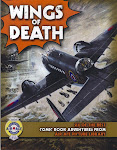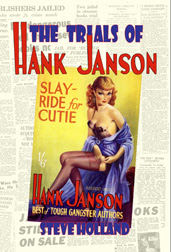Leslie David Gibbard was born in Kaiapoi, New Zealand, on 26 October 1945, the son of teachers Ray and Dorothy Gibbard. and was educated in Auckland where he was taught in charcoal and pastels by Franz Szirman. As a schoolboy he also sought out the advice of Gordon ('Min') Minhinnick, a cartoonist with the New Zealand Herald. Gibbard began working as a journalist in 1962 and also produced cartoons for various New Zealand and Australian newspapers over the next few years, including what he described as a two year "apprenticeship" at the New Zealand Herald under 'Min'.
Gibbard travelled to London in 1967 and freelanced cartoons, some signed 'Spike', until joining the Sunday Telegraph as arts caricaturist and pocket cartoonist. In 1969 he succeeded Bill Papas as political cartoonist on The Guardian, at 23 the youngest cartoonist the paper had ever employed. His employment was originally to cover for Papas who was about to go on leave, but the two worked in tandem for a while before Papas left and Gibbard was taken on full time. He gave up working for the Telegraph in 1970.
During his years on The Guardian, Gibbard produced a number of notable cartoons and illustrations. A cartoon of Margaret Thatcher was turned down following her election win in 1979 on the grounds that "it was too tough and ungentlemanly to attack a lady at the start of her honeymoon." It was as short honeymoon, recalled Gibbard: "Thatcher lost no time in attacking the caring society which readers and staff held dear. For a while the electorate was equally dismayed and Thatcher hit the depths of the opinion polls."
Gibbard's most infamous cartoon appeared during the Falklands War. Gibbard later saying:
Any romantic view of war was shattered when the Argentinian cruiser General Belgrano was sunk by the submarine Conqueror and 362 men killed, along with a hopeful Peruvian peace plan. Before emotions could recover an Exocet missile sank the Sheffield.The Sun's leader writer, Ronald Spark, was expelled from the NUJ the following October, his leader described as "vituperative, callous and clearly designed to inflame public opinion ... for a professional journalist to accuse of treason any citizen who was 'questioning whether the Government's version of the sea battles was to be believed' would be bad enough. To make such an accusation against one fellow journalist who, unlike Mr Spark, expressed no personal opinion but examined facts, or another who sought to comment on the loss of British lives, was much worse".
__Looking for some way to express my anger at the pointless waste of human life on both sides I turned to the famous cartoon by Philip Zec, which nearly had the Daily Mirror closed down during the second world war. The original cartoon showed a merchant seaman clinging to ocean debris and was entitled "The price of petrol has been increased by a penny—official."
__Zec had intended his cartoon to show the terrible price paid in lives for the nation's petrol during the war and how waste was immoral, but it was interpreted by some as an attack on profiteering oil companies. The matter was hotly debated in Parliament.
__Gibbard's "The price of sovereignty has increased—official" appeared on May 6, 1982. I was unaware of the furore caused by it until I returned home later the following day to barrage of phone calls asking me how I proposed responding to being called a traitor.
__"There are traitors in our midst," said the editorial in the Sun. The main targets were Peter Snow, who on BBC television constantly put a question mark over the Government's version of the campaign, and the Sun's deadly rival in a circulation war, the anti-war Mirror.
__Caught up in the middle was my cartoon.
__"What is it but treason for the Guardian to print a cartoon showing a British seaman clinging to a raft... isn't that exactly calculated to weaken Britain's resolve at a time when lives have been lost, whatever the justice of her cause?" snorted the Sun.
__My attitude was that he who lived by the sword had to expect to run into a few pricks. However there was a great thunder of hooves and the National Union of Journalists galloped to an unsought-after "rescue". The Sun's leader writer was ousted from the union for unfraternal behaviour. Shades of Zec, the matter was raised in the House.
Spark's expulsion was later retracted and replaced with a 12-month suspension, which meant he could remain with the Sun, which operated a closed shop.
Gibbard continued to work for The Guardian until 1994, also contributing to numerous other newspapers and magazines over the years. In 1973-75 he also worked as an animator with Richard Williams' studio and, in 1976-77, produced his own animated political cartoon series, Newshound, for Granada TV's Reports Politics. It took three days of each week for Gibbard and his assistant to produce the 60 seconds of animation which was then shipped to Manchester for transmission.
In 1980-82 he drew political cartoons for Channel 4's A Week in Politics, and also worked for the BBC's Newsnight. From 1988-95 he worked on the BBC's On the Record, drawing up to 10 cartoons a week to illustrate comments and the responses of presenters John Cole, John Sergeant and Nick Robinson. Gibbard was a layout artist for the animated show The Super Globetrotters in 1979 and worked on numerous shows and films in the 1990s, including work as key animator on The Princess and the Goblin (1992), The World of Peter Rabbit and Friends (1993-95), The Wind in the Willows (1995) and A Monkey's Tale (1999), and an animator on many other animated shows, including the movies Under Milk Wood (1992) and Raymond Briggs' Ivor the Invisible (2001). In 2002 he was storyboard artist for Totally Spies!, broadcast on Jetix in the UK.
Mark Bryant, in Dictionary of British Cartoonists and Caricaturists 1730-1980, noted that Gibbard worked in pen and ink using a Gillot 404 nib on cartridge paper, an HB pencil and a No.4 sable brush. For TV drawings he used Daler line-and-wash board with a neutral tint wash.
Gibbard was married to Susannah Taylor in 1982.
Obituaries: The Guardian (brief, 12 October); The Guardian (21 October); The Independent (23 October).
(* Illustrations © Guardian News & Media Ltd.)


























































No comments:
Post a Comment